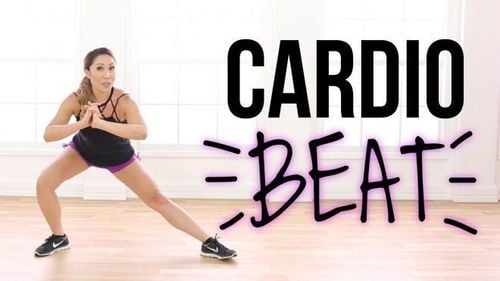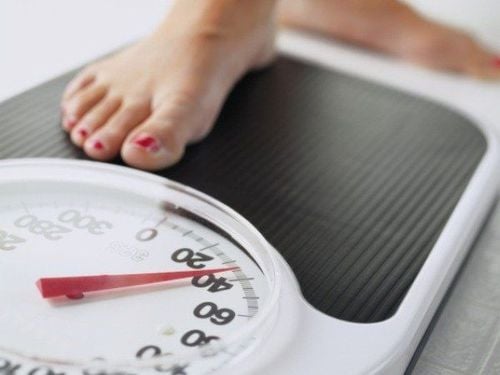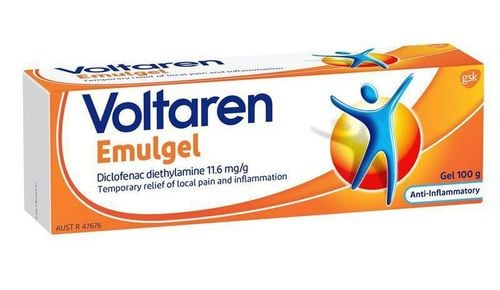This is an automatically translated article.
Most athletes know that getting enough rest after a workout is essential for high performance, but many still find it difficult when they take a day off. The body repairs and strengthens itself during the breaks between workouts, and constant training can really weaken even the strongest athletes. So how important is it to rest during exercise? Find out more articles below.Rest days are important to athletic performance for many reasons. Some are physiological and some are psychological. Rest is physically necessary so that muscles can repair, rebuild, and strengthen. For recreational athletes, training on rest days can help maintain a better balance between home, work, and fitness goals. In the worst case scenario, too little rest and too few recovery days can lead to overtraining syndrome. Once you have this condition, it is very difficult to recover.
1. The benefits of resting when working out
1.1. Allows muscles to grow
Exercise creates very small tears in your muscles. But when you rest, cells called fibroblasts repair it. This helps tissue heal and grow, leading to stronger muscles.Also, your muscles already store carbohydrates in the form of glycogen. During exercise, your body breaks down glycogen to fuel the workout. Rest gives the body time to replenish these energy sources before the next workout.

Khi bạn nghỉ ngơi sau tập luyện, cơ bắp được chữa lành và khỏe mạnh hơn
1.2. Prevent muscle fatigue
Rest is necessary to avoid exercise-induced fatigue. Exercise will reduce the amount of glycogen in your muscles. If this glycogen is not replaced, you will experience fatigue and muscle pain.Plus, your muscles need glycogen to function, even when you're not working out. By getting enough rest, you will prevent fatigue by allowing your glycogen stores to refill.
1.3. Reduce the risk of injury
Overtraining puts your muscles under strain, and repetitive strain increases your risk of injury from overuse, forcing you to rest more days than intended.Regular rest is essential to stay safe during your workouts. When your body is overworked, it's easy to lose shape, lose weight, and go in the wrong direction.
1.4. Improve the performance
If you don't get enough rest, it can be difficult for you to carry out your normal routine, let alone challenge yourself. For example, you may be less motivated to do one more rep or run an extra stretch.Even if you push yourself, overtraining will reduce your performance. You may experience reduced endurance, slow reaction times, and less agility.
Rest has the opposite effect. It increases energy and prevents fatigue, helping your body prepare for successful continuous training.
1.5. Supports healthy sleep
Physical activity increases energy-boosting hormones like cortisol and adrenaline. However, when you exercise continuously, there is an overproduction of these hormones. You will have a hard time getting quality sleep, which only worsens fatigue and exhaustion.A night or two without a good night's sleep usually doesn't have much of an impact on performance. But consistently not getting enough sleep can lead to changes in hormone levels, especially those related to stress, muscle recovery, and mood. Sleep deprivation can lead to increased blood levels of cortisol (a stress hormone), decreased activity of human growth hormone (important for tissue repair), and decreased glycogen synthesis.
Rest can help you sleep better by letting your hormones return to a normal, balanced state.
1.6. Adapting to training
The adaptation principle states that when we experience the stress of exercise, the body adapts and becomes more efficient. It's like learning any new skill. It will be difficult at first, but over time, it becomes the essence. Once you adapt to a certain stress, you will need more stress to continue to progress.But there are limits to how much stress the body can take before it breaks down and gets injured. Doing too much too quickly can lead to injury or muscle damage. Doing too little too slowly will not yield any improvement. This is why personal trainers establish specific programs to increase duration and intensity at a set pace and allow rest days.
2. Signs your body needs to rest
If you notice any of the signs below, it's time for your body to rest:Muscle pain: While it's normal to feel sore after exercising, the soreness persists. is a red sign. It means your muscles haven't recovered from previous workouts. Fatigue: That's when your body runs out of energy and of course you need to rest to recharge that energy. Pain: Muscle or joint pain that doesn't go away can be a sign of overuse injury. Emotional changes: When your body is exhausted, hormones like serotonin and cortisol get out of balance. This can cause changes like irritability and mood swings. Sleep problems. High levels of cortisol and adrenaline can make it difficult to get quality sleep. Reduced performance. If your normal routine feels difficult or if you're not seeing progress then take a day off.
3. How to rest properly?
The ideal level of rest will vary from person to person. It depends on the intensity and frequency of your normal routine, and your lifestyle beyond exercise. However, there are general guidelines for incorporating rest in different exercises:3.1. Exercise Cardio
Usually breaks are not needed if you have symptoms of mild cardiovascular disease. It includes activities such as gentle walking or slow dancing. It is safe enough for mild cardiovascular disease, unless your doctor advises you not to continue.But if you're doing moderate or vigorous aerobic activity, rest days are essential. You should rest three to five days a week. If you do intense cardio then you'll want to have more frequent rest days.
You can also have an active rest day by doing gentle exercise, such as gentle stretching.
To determine when to rest, review recommendations for aerobic activity. Adults should get 150 to 300 minutes of moderate activity each week or 75 to 150 minutes of vigorous activity. You can also combine it with moderate and vigorous activities.

Tập thể dục một cách nhẹ nhàng cũng là một cách nghỉ ngơi để năng lượng hồi phục
3.2. When you're running
Although running is a form of cardiovascular exercise, you still need rest.If you are a beginner, start running three days a week. Running too much can lead to fatigue and injury. On other days, give yourself a break or do different activities. Your other exercises should involve muscles that you don't use when running.
Rest days are even more important if you are training for a marathon. During the last three weeks before the event, it's best to rest more often. A personal trainer or running coach can explain how to rest based on your goals.
3.3. Fitness
This is a form of combining rest by alternating resting muscles.After working a specific muscle group, let it rest for about one to two days. This will give your muscles a chance to repair and heal. On other days, train different muscles. Make sure to move the opposing muscles to keep the balance of the body.
A couple of examples for implementing rest between workouts is to assign training days to each body part. Like Monday is leg day, Tuesday is chest workout...
3.4. Weight loss plan
You are in the process of losing weight, but you still need regular rest days.Rest allows your muscles to rebuild and grow. And when you have more muscle, you'll burn more calories at rest. That's because muscle burns more energy than fat.
Plus, when you feel good, you'll be more likely to stick to your exercise routine.
4. What should you do while resting?
4.1. Diet and protein
On rest days, your body usually needs fewer calories because you're not as active. But instead of trying to eliminate a specific number of calories, simply listen to your body. It will naturally "beg" for less food through two feelings of fullness and hunger.It is important that you eat enough protein, even on rest days. Adequate protein intake will aid in the muscle repair process that occurs at rest.
Active people will need 1.2 to 2.0 grams of protein per kilogram of body weight per day. This should be done regularly throughout the day.
You should focus on the following groups:
Carbohydrates: Eat complex carbs to restore your glycogen levels. Depending on your activity level, you will need between 3 and 10 grams per kilogram of body weight per day. Water: Drinking enough water is essential, even when you're not exercising. Staying hydrated helps prevent muscle cramps and provides nutrients to the body. Fruits and vegetables: Provides healthy carbs and nutrients that support recovery.
4.2. Relax with yoga
Yoga is one of the best things you can do on a day off. It's great for improving awareness, breathing and body flexibility. It also helps you build strength while relaxing your muscles.Plus, yoga promotes calmness, leaving you refreshed and ready for your next workout. You don't need much time to enjoy the benefits of yoga. You only need 10 to 15 minutes to help with exercise recovery.
4.3. Low impact exercise
Like yoga, low-impact exercise is a great rest day activity. Low-impact exercises help you stay active without undue stress on your body. They also allow you to exercise in the most relaxing way.Low impact exercises include:
Walking Swimming Cycling Dancing... Whether you're a beginner or a seasoned athlete, regular rest is important. It's needed to repair muscles, prevent fatigue, and promote overall performance. Remember, when you don't get enough rest, you're less likely to achieve the goals you set out in the first place. Resting your body is the best thing you can do to be successful in your fitness routine.
Please follow the website ( www.vinmec.com ) for more information on health care instructions, which we will update regularly.
Please dial HOTLINE for more information or register for an appointment HERE. Download MyVinmec app to make appointments faster and to manage your bookings easily.













